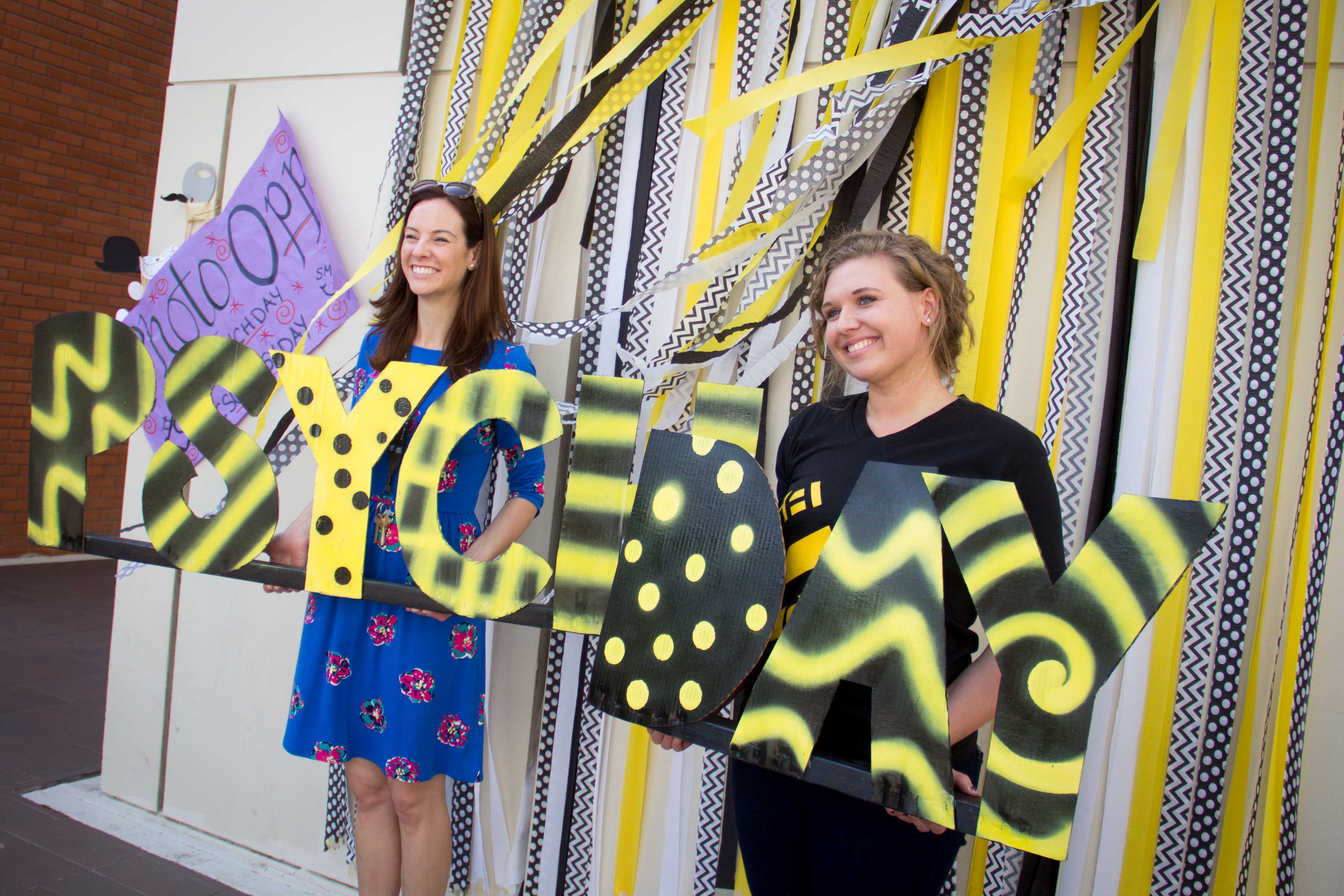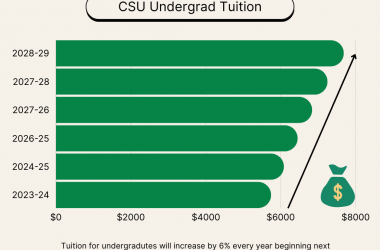More than 150 students gathered in the Beach Auditorium to listen to University of California, Los Angeles psychology professor Kerri Johnson’s seminar on how humans interpret visual cues to make judgments about a person’s sex, race and sexual orientation.
Johnson gave the presentation, “Social Categorizations as Decisions Made Under Uncertainty,” Wednesday, as part of Cal State Long Beach’s 42nd annual Psychology Day.
Before getting into the bulk of her presentation, Johnson mentioned that her work contains topics that people don’t like to discuss and that people may not like what her evidence suggests.
“Despite the tough topics we will cover, I promise to end on a happy note,” she said.
Johnson’s data showed that people make decisions about a person’s race, gender and age almost instantaneously upon sight. She refers to this as “social vision.”
“The integration of these visual and social components influence the social categorization that people make,” she said. “[Social categorization] is no longer all or nothing. Categorization is … prone to systematic biases and quite consequential.”
The professor bases her work off of the Heuristic Decision Model, which says that a person’s perceived social category is based on probabilistic judgment of sensory cues and a bias due to how it affects them.
The seminar was broken into three categories: sex, race and sexual orientation.
Perceptions of another person’s sex are made rapidly and based on the shape and motion of his or her body, Johnson said. The participants in the study found that when doubt is present, a person will typically assume someone is male rather than female.
When speaking about race, in a study with biracial black and white subjects, Johnson said that when ambiguity is present in visual and auditory cues, a person will lean more toward judging the subject as black rather than white.
In the section about sexual orientation, she said judgments are made based upon body movement, and her data showed that bias is always a factor because people are reluctant to make the distinction between straight and gay in order to avoid exposing people to a social stigma.
Lisa Porter, a freshman child development major, said she liked that Johnson covered a topic that people think but never talk about.
“These topics cause arguments because they aren’t politically correct,” Porter said. “That’s why I don’t really talk about them.”
She said her favorite part of the presentation was Johnson’s data, which showed that fear impacts people’s judgments about sex and race.
“It’s not really something I had thought about, but I understand the correlation,” Porter said. “I just didn’t think it affected the speed at which we made decisions.”
Johnson’s presentation also showed that people make judgments on characteristics in a variety of domains for a number of reasons.
Johnson earned her Ph.D. from Cornel University and is currently a professor of social psychology at UCLA. Her work has been featured on channels such as the Discovery Channel, BBC and TLC.





Very nice article! Great summary of the data.
Wow, Great subject. Well written article.